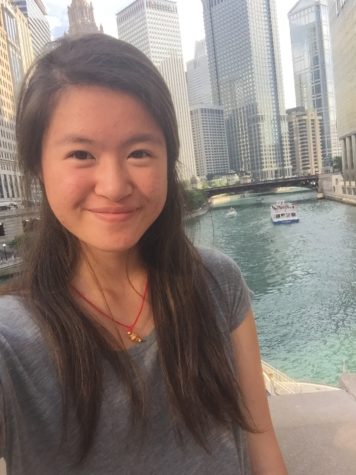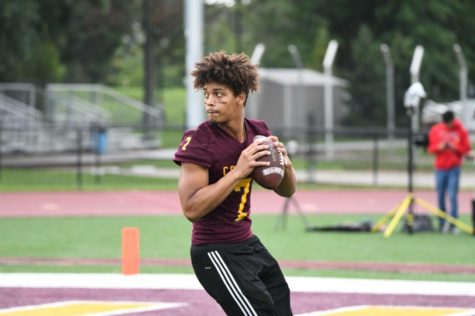What Happens When Minorities are Represented on the Big Screens
Something truly extraordinary has happened in 2018, a wave of cultural pride and emotions from just a few hours of screen time from three historically important movies, “Crazy Rich Asians”, “Black Panther”, and “Love, Simon”. Each movie contains lead roles of cultural and racial minorities, featuring Asian, Black, and LGBTQ+ characters that are the centerpiece of the big screen’s hottest and most successful movies this year. These movies celebrate their underrepresented communities, and members of these communities in our very own North and South are feeling celebrated.
Crazy Rich Asians couldn’t have done better after its release in August. The movie was #1 in the box office opening weekend. For once, an Asian oriented movie isn’t about the exotic, foreign, martial arts trademarks, but the heart of a culture embedded in family, hard work, and most of all, sacrifice.
It perfectly encaptured some of the key cultural concepts Asians have while humanizing the characters beyond their “crazy rich” title. From our family, our games, to our lactose intolerance and street food, Crazy Rich Asians does not stop to baby its audience into the beauty and realness of Asian culture. Director of “Crazy Rich Asians”, Jon M. Chu, says,
“We didn’t want to give people an excuse to think of this world as some kind of obscure, exotic fantasyland — this is a real place, with real culture, history, and tradition, and instead of just giving them answers to their questions, we want them to have conversations.”
And just as real as Asian culture is, Chu addresses something just as real and incredibly important to Asians who grew up in America.
As an American Born Chinese, (ABC), Rachel Chu’s story hit home toward my individual struggles in finding a balance between feeling like I need to conform to American standards while still maintaining my core identity as Chinese. I’ve constantly tried to make myself easier to swallow for America, to eat, talk, and act like the media that enforces this concept, rarely feeling proud of my true identity. But in that, I am forsaking the bedrock that my identity was built upon, trading it for the American status quo. Subsequently, when actors like Constance Wu and Gemma Chan, two amazingly casted, beautiful, and strong women, are put on the big screens, they begin to break down the eurocentric beauty standards and stereotypes of how Asians are portrayed, and break down the need to conform to what minorities have always seen in magazines, movies, and media. Never have we quite seen a powerful Asian American character in popular media so in charge of her destiny in morals, refusing to forsake her integrity and identity.
The same goes for the men in the film, removing the Asian male body from the concept that they exist purely in an academic, professional body, expanding their role into something capable of romance and appeal. Letitia Wright and Lupita Nyong’o, who plays Shuri and Nakia in “Black Panther”, only bring this notion home, showing that minorities are in every way independent and beautiful, despite the standards driven by lack of representation in Hollywood.

Amanda Wang, a senior at South, who also grew up as an Asian American, found immense personal importance in “Crazy Rich Asians”.
“Crazy Rich Asians” means a lot to me because it was the first time that I got to see people who looked like me be the main characters on the big screen, which was really insane. Its popularity and positive feedback were really empowering because it proved that this story/film isn’t just relevant and enjoyable to me as an Asian-American but to everyone. I personally love when minorities are represented on the big screens because I’m a part of multiple cultural minority groups, and to see people represent my identity in a positive and more accurate way is really validating.”
I saw the same emotions in the black community following the release of “Black Panther” as I did in the Asian community, a universal pride when underrepresented minorities are our movie heroine.
“Representation in movies empowers people and kids of minorities, especially now where you see a lot more minorities cast as main roles. This is big, as it builds strength and confidence.” North junior Trez O’Reilly tells me. Zynell Nixon, a senior at north, tells me of the importance representation has on these minorities that struggle with their identity.

“I always got looked at differently when I was a kid because I was black. If I had seen more movies like “Black Panther” I would’ve known my identity prior to high school.” And Nixon acknowledges that minority featured movies are representative of something bigger.
“It makes me proud, because society is changing in so many ways and looking at minorities in a different light.”
And it doesn’t stop at racial minorities. Recently shown in theaters was “Love, Simon”, considered the first romantic comedy featuring a gay teen produced by a major studio. “Love, Simon” also elicited a similar response from the LGBTQ community as many minority featured movies too, as gay love stories are just as underrepresented in the big screens too. Senior Ollie McDermott-Sipe explains why a movie like “Love, Simon” is important for her.
“We deserve to see the same representation that non LGBTQ people experience on the daily; everywhere they look, the love they feel for others is validated. Everyone should be able to feel that way. I want to see love represented in a way that is accessible to all identities.”
2018 is a year of representation, for both cultural and racial minorities, breaking down standards and validating identities for students across Bloomington in a way that’s never been as widely spread than right now.







